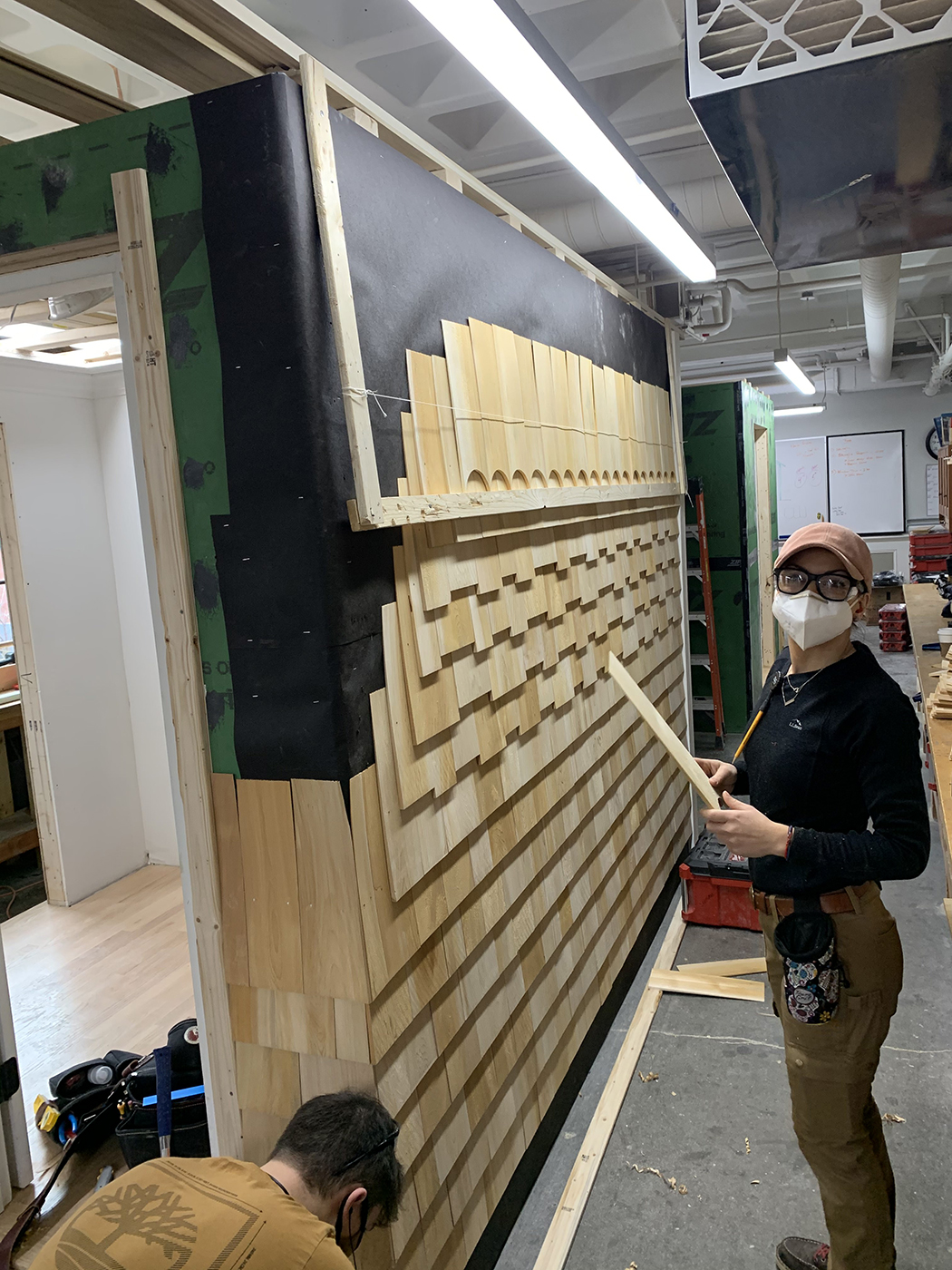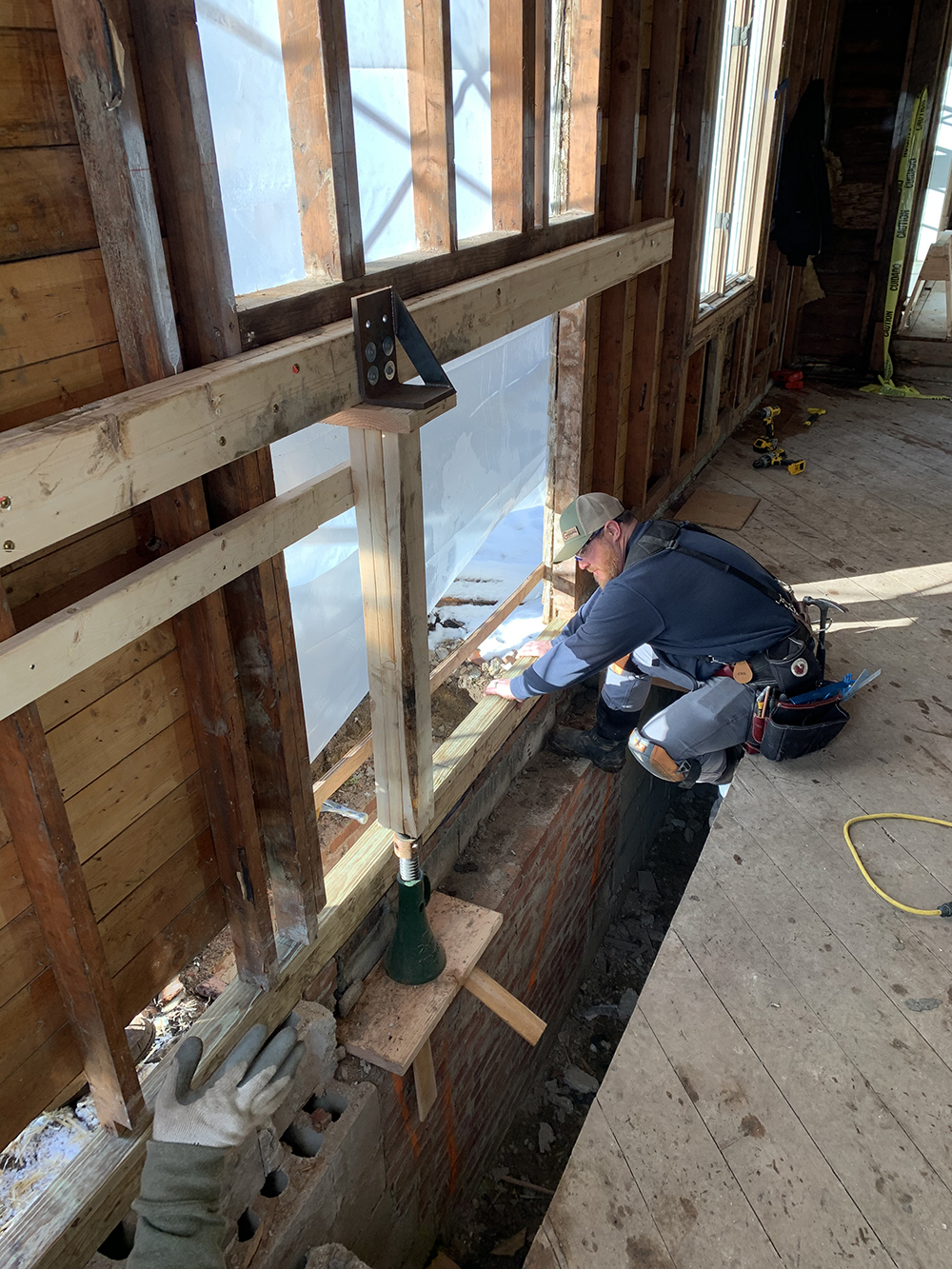Are you curious to know what it’s like to study carpentry? Wondering what you can learn in carpentry school? Well, you’re in the right place! Carpentry school is an exciting opportunity to gain practical skills while unleashing your creativity. In this article, we’ll explore the fascinating world of carpentry education and discover the valuable knowledge and hands-on experiences you can expect to gain. So, let’s grab our tool belts and dive into the world of carpentry school!
In carpentry school, you’ll embark on a journey of discovery as you learn the ins and outs of this timeless trade. From basic woodworking techniques to complex joinery methods, you’ll build a solid foundation of skills that will set you up for success in the carpentry industry. By honing your abilities to measure, cut, shape, and assemble wood, you’ll be equipped with the know-how to create stunning furniture pieces and craftmanship that showcases your talent.
Not only will you learn the practical aspects of carpentry, but you’ll also delve into the theoretical knowledge that underpins the craft. You’ll study the principles of design, understanding how to create aesthetically pleasing structures while ensuring they are functional and durable. Additionally, you’ll grasp concepts such as blueprint reading, math for construction, and safety protocols to ensure that you can approach any project with confidence and precision. So, get ready to bring your visions to life with the comprehensive education offered in carpentry school!

What Do You Learn in Carpentry School?
When it comes to carpentry school, aspiring carpenters undergo comprehensive training to develop the necessary skills and knowledge required for a successful career in the field. From learning basic woodworking techniques to mastering advanced construction methods, carpentry school equips students with the tools and expertise they need to excel in the trade. In this article, we will explore the various subjects and areas of focus that students typically encounter in carpentry school.
Skills Taught in Carpentry School
1. Basic Woodworking Techniques
2. Construction Materials and Tools
3. Blueprint Reading and Interpretation
4. Hands-on Carpentry Projects
5. Building Codes and Regulations
6. Safety Practices in Carpentry
7. Advanced Carpentry Techniques
Basic Woodworking Techniques
One of the foundations of carpentry school is the teaching of basic woodworking techniques. Students learn how to properly use hand tools like saws, chisels, and planes to measure, cut, shape, and join wooden pieces together. They also gain an understanding of different types of wood and when to use them for specific projects. By mastering these fundamental skills, students can develop a strong foundation upon which to build their carpentry expertise.
Throughout their training, students are introduced to various construction materials and tools commonly used in the industry. They learn how to identify and select the most appropriate materials for specific projects, as well as how to operate and maintain different types of tools, such as power saws, drills, and sanders. This knowledge enables them to handle a wide range of construction tasks effectively.
Tip: When starting out with woodworking and carpentry, it’s important to invest in quality tools. They may cost more initially, but they will last longer and provide better results in the long run.
Blueprint Reading and Interpretation
Blueprint reading and interpretation are essential skills that carpentry school students acquire. They learn how to read architectural drawings and understand the symbols and measurements used in the construction industry. This knowledge allows them to analyze and interpret blueprints accurately, ensuring that they can follow project plans efficiently and complete tasks to the required specifications.
Proficiency in blueprint reading also enables carpenters to communicate effectively with architects, engineers, and other professionals involved in the construction process. This collaborative approach ensures that everyone is on the same page and helps prevent costly errors and rework.
Tip: Take the time to practice blueprint reading regularly. The more familiar you become with different types of drawings, the more confident you will be in executing carpentry projects.
Hands-on Carpentry Projects
Carpentry school emphasizes practical, hands-on experience. Students have the opportunity to work on real-life carpentry projects, ranging from small-scale furniture pieces to larger structures like sheds or even houses. This practical experience allows students to apply the theoretical knowledge they have gained, develop their skills, and refine their techniques under the guidance of experienced instructors.
Through these projects, students not only learn how to measure and cut wood accurately but also gain an understanding of the entire construction process. They practice assembling and erecting structures, develop problem-solving skills, and learn how to work efficiently as part of a team.
Tip: While working on hands-on projects in carpentry school, take the opportunity to make mistakes and learn from them. This is an essential part of the learning process and will help you grow as a carpenter.
Building Codes and Regulations
A crucial aspect of carpentry school is the teaching of building codes and regulations. Students learn about the legal requirements and safety standards that must be adhered to in construction projects. This knowledge ensures that they can construct buildings that are safe, structurally sound, and meet all regulatory guidelines.
With the understanding of building codes, students are able to determine the proper methods for constructing foundations, framing walls, installing electrical systems, and more. They also learn how to obtain permits and navigate the inspection process to ensure compliance with building regulations.
Tip: Stay updated with the latest building codes and regulations in your area. The construction industry is constantly evolving, and it’s essential to remain informed to deliver high-quality work.
Safety Practices in Carpentry
Carpentry can be physically demanding and potentially hazardous. Therefore, safety practices are of utmost importance. Carpentry school dedicates significant attention to teaching students how to work safely in the workshop and on construction sites.
Students learn about proper tool handling, the correct use of personal protective equipment (PPE), and various safety protocols to minimize the risk of accidents or injuries. They also gain an understanding of potential hazards in different carpentry tasks, such as working with power tools, climbing ladders, or handling heavy materials.
Tip: Never compromise on safety. Always wear appropriate protective gear, follow safety guidelines, and be vigilant about potential hazards to ensure your well-being on the job.
Advanced Carpentry Techniques
As students progress in their carpentry training, they delve into more advanced techniques and projects. They learn specialized skills such as cabinetry, stair building, finishing techniques, and more. This advanced training allows carpenters to expand their services and work on a wider range of projects. They gain the expertise needed to create intricate joinery, successfully execute complex designs, and achieve high-quality finishes.
Throughout this advanced training, students are encouraged to explore their creativity and develop a personal style in their carpentry work. The emphasis is on honing their craftsmanship and becoming adaptable to different types of projects and client demands.
Tip: Continuously seek opportunities to learn and improve your carpentry skills. Attend workshops, stay updated with industry trends, and never stop exploring new techniques and materials.
Key Takeaways: What Do You Learn in Carpentry School?
- In carpentry school, you will learn essential woodworking skills.
- You will learn how to use various tools, like saws, planes, and drills.
- Classes will teach you about different types of wood and their properties.
- You will learn how to read blueprints and create detailed plans for carpentry projects.
- Safety is a crucial aspect of carpentry school, where you will learn about proper safety precautions.
Frequently Asked Questions
Welcome to our FAQ section where we answer common questions about what you can learn in carpentry school. Whether you’re interested in pursuing a career in carpentry or simply want to improve your DIY skills, this guide will provide you with valuable insights into the world of carpentry education.
1. What are some basic skills taught in carpentry school?
In carpentry school, you’ll learn various basic skills necessary to work with wood and build structures. These skills include reading blueprints, measuring and cutting wood accurately, understanding building codes and regulations, and using hand and power tools safely. You’ll also learn about different types of wood and how to select the appropriate materials for specific projects.
Carpentry school will also teach you foundational skills such as framing, installing doors and windows, building cabinets, and finishing techniques like sanding, staining, and varnishing. By the end of your training, you’ll have a solid understanding of the fundamental skills required to start your carpentry career.
2. Is learning math important in carpentry school?
Yes, math is an essential part of carpentry school. In order to accurately measure and cut wood, calculate angles and dimensions, and understand blueprint specifications, a good grasp of basic math is crucial. You’ll learn how to use fractions, decimals, and measurements to ensure precise carpentry work.
Carpentry involves problem-solving, and math plays a crucial role in creating accurate and structurally sound designs. Whether it’s calculating the materials needed for a project or determining load-bearing capacities, math skills acquired in carpentry school will lay the foundation for successful carpentry work.
3. Can I specialize in a specific area of carpentry?
Absolutely! Carpentry offers various specialization options to cater to different interests and career paths. Once you have a solid foundation in general carpentry skills, you can choose to specialize in areas such as finish carpentry, cabinet making, residential construction, or even restoration carpentry.
Specializing in a specific area allows you to develop expertise in that particular field, making you a sought-after professional. It’s important to note that while having a specialization can open up more opportunities, having a strong understanding of general carpentry skills will always be beneficial.
4. Will I learn about workplace safety in carpentry school?
Yes, workplace safety is a critical component of carpentry school. You’ll learn about proper handling and use of tools, personal protective equipment (PPE), and how to create a safe working environment. Understanding and implementing safety protocols is essential to prevent accidents and injuries in a carpentry workshop or construction site.
Additionally, you’ll learn about hazardous materials and how to handle them correctly. Carpentry school will equip you with the knowledge and skills needed to ensure not only your own safety but also the safety of others around you.
5. Can carpentry school help me start my own business?
Absolutely! Carpentry school can provide you with the knowledge and skills necessary to start your own carpentry business. Alongside the practical skills of carpentry, you’ll learn about business management, budgeting, estimating project costs, and client communication. Understanding these aspects of running a business will increase your chances of success as a self-employed carpenter.
Furthermore, carpentry school often provides opportunities for apprenticeships or internships, allowing you to gain practical experience and make valuable industry connections. These connections can be invaluable when starting your own business, as they can lead to potential clients and referrals.

In carpentry school, you will learn practical skills and gain knowledge about woodwork. You will discover different types of tools, safety protocols, and construction techniques. These skills will prepare you for a career in carpentry or help you with DIY projects at home.
